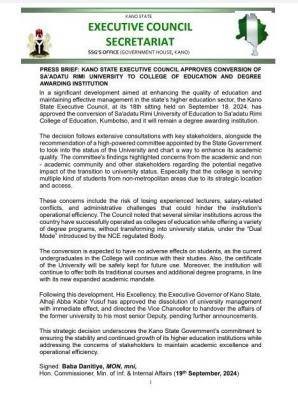
In a world where knowledge and skills can quickly become outdated, the concept of lifelong education has gained immense popularity. Lifelong education encourages individuals to engage in continuous learning throughout their lives, adapting to new circumstances and broadening their perspectives. Though selecting the right program might not be an easy task, this guide offers valuable insights into making informed decisions regarding educational paths.
The Importance of Lifelong Learning
Organizations increasingly seek adaptable employees who are willing to learn and grow. Ongoing education can improve an individual’s competitiveness in the job market while fostering personal fulfillment. Exploring new subjects and advancing skills can lead to unexpected opportunities.
Pursuing varied educational experiences can create a richer, more fulfilling life, nurturing creativity and enhancing critical thinking abilities. Consequently, dedicating time to lifelong education can also result in financial benefits. So why settle for stagnant knowledge when you can continually enrich yourself?
Exploring Different Educational Options
As you embark on your search for the ideal educational program, familiarize yourself with different formats and environments. Traditional in-person classes are just one avenue; online and hybrid options have gained traction and popularity. Online education offers the flexibility of studying at your own pace, making it easier to balance personal and professional commitments.
Online courses encompass various course levels—ranging from certificates to advanced degrees like an online Ed doctorate degree or other STEM-related degrees. This breadth of choices allows for tailored learning experiences that align closely with your ambitions and existing commitments. Consider the value of workshops, seminars, conferences, and community programs, which can enhance practical experience and networking opportunities. Whether you prefer an auditory, visual, or kinesthetic learning style, you’ll find a program that resonates best with your approach to learning.
Identifying Personal and Professional Goals
An educational program starts with a clear understanding of your goals. Consider what you hope to achieve through further education. Are you looking to change careers, advance in your current position, or develop a new skill set? Identifying core objectives will guide your program selection process.
Evaluate your strengths, interests, and areas for improvement. Setting both short-term and long-term goals helps maintain focus during your educational journey. Consult with mentors or industry professionals to provide insights into the skills most relevant to your aspirations. It’s also beneficial to revisit and reassess your goals periodically.
Changing interests and shifts in the job market may prompt you to explore different educational pathways than originally anticipated. A well-defined goal will keep you motivated throughout your learning experience and ease the decision-making process.
Researching Institutions and Programs
Once you have laid the groundwork for your educational pursuits, the next step is thorough research into potential programs and institutions. Investigate accreditation, faculty qualifications, student support services, and alumni success. Accreditation ensures that the program meets specific academic standards, increasing the value of your credentials in the job market.
Gathering student testimonials and reviews can provide invaluable insights into the program’s strengths and weaknesses. Don’t hesitate to reach out to current students or alumni for first-hand experiences. Think about the financial implications of your choice: look for tuition costs, financial aid availability, and scholarship programs that may alleviate the financial burden of continued education. Understanding the full picture will allow you to make a well-informed decision that fits both your aspirations and budget.
Making the Final Decision
The choice of an academic program requires careful consideration, but there comes a time to make a final decision. Reflect on all the information gathered throughout your research process. See how well various programs align with your defined goals, learning preferences, and commitments. It may be helpful to create a pros and cons list for each prospective option, easing the decision-making process.
Trust your instincts as you weigh your options. Sometimes the best choice may not align perfectly with expectations on paper but offers the potential for growth and satisfaction. If possible, visit campuses or attend information sessions to gain a personal feel for the environment and culture of the institution.
The Journey of Lifelong Learning
The journey does not end upon making your decision — lifelong education cultivates curiosity and resilience, characteristics that can propel you to new heights both personally and professionally. Each step taken in pursuit of learning broadens your knowledge base and shapes your perspective on life. Along the way, be open to opportunities for continued education, networking, and mentorship that will contribute to your growth.
Recognize that learning may not always follow a linear path and is often filled with unexpected turns. Embrace the flexibility of adapting your goals and choices as new opportunities arise, and don’t hesitate to revisit earlier aspirations. Lifelong learning is a commitment to personal evolution and always seeking knowledge.

As you embark on your educational venture, remember to enjoy the process, celebrate achievements, and foster a mindset of growth. Continuing education remains essential for personal progression and professional development.
A well-considered decision to pursue lifelong learning can lead to the fulfillment of both career and personal aspirations. With clarity on your goals, diligent research, and an open mind, selecting the right educational program will bring not only academic credentials but also enhanced wisdom and new opportunities.




